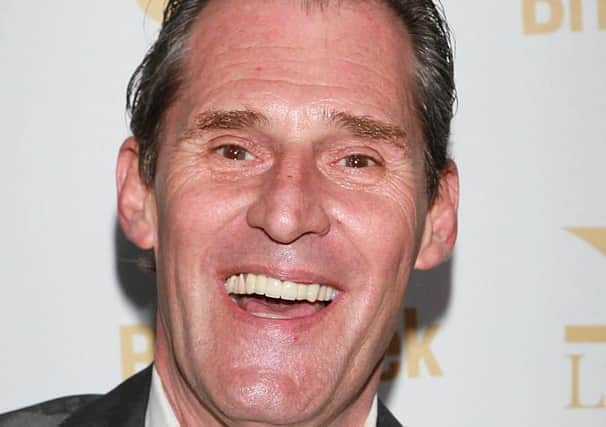Obituary: Ben Cross, British actor remembered for Chariots of Fire


Before the title credit sequence of Chariots of Fire had finished, Ben Cross established his place in Scottish cinematic history. He was one of the runners splashing barefoot at the water’s edge on the West Sands at St Andrews, in slow motion to a triumphal soundtrack from Vangelis. It is the single most iconic scene in a film that went on to become the first film shot in Scotland to win the Oscar for Best Film.
Such was its impact that even now, four decades later, there is an annual race recreating that beach run, with runners dressed all in white, like the characters in the film – I know from personal experience, having done it. Some run barefoot and some even – horror of horrors – slow down as they cross the finish line, with the Vangelis music playing through speakers, throwing their arms in the air, to recapture the spirit of a film that celebrated running in a seemingly more innocent time, and Britain’s achievements at the 1924 Olympic Games.
Advertisement
Hide AdAdvertisement
Hide AdAlthough much of the film is set in Scotland, with scenes shot at Holyrood Park, Inverleith, Goldenacre, the Assembly Hall and Café Royal in Edinburgh, many forget (or never knew) that in that opening scene St Andrews is doubling for Broadstairs in Kent.
The film focused primarily on Eric Liddell, a Scot and a devout Christian who refused to compete on Sundays and went on to become a missionary in China, played by the late Ian Charleson, and Harold Abrahams, who was Jewish and was played by Ben Cross. The film begins with Abrahams’s funeral and flashes back to that beach run, with Cross showing the determination on his face that would make him Olympic 100 metres champion.
Dark and ruggedly handsome, Cross looked like a classic leading man and went on to play the Scottish doctor Andrew Manson in the BBC period drama The Citadel, adapted from a novel by the Scots writer AJ Cronin, and the army officer at the centre of the action in the sprawling, big-budget ITV miniseries The Far Pavilions, adapted from MM Kaye’s doorstopper of a book, set in India at the time of the Raj.
Cross never got the big Hollywood roles that might have made him an international star, though he rubbed shoulders with Sean Connery and Richard Gere as the villain in First Knight and will be familiar to keen Trekkers, having played Spock’s father Sarek in the 2009 reboot of Star Trek.
Cross was very much his own man – he wrote articles and plays, including Nearly Midnight, in which “two strangers struggle to uncover the truth behind a horrific childhood crime”, staged at Underbelly during the 2003 Edinburgh Fringe.
He was also a songwriter, musician and singer. He appeared in the original West End production of Chicago and worked as a session singer for Decca in the early 1970s. In recent years he lived in Bulgaria and two years ago he married for a third time, to Bulgarian artist Deyana Boneva, in the village of Zheravna in the Balkan Mountains, with both in colourful, traditional Bulgarian outfits. They had a pet hedgehog called Harold.
Cross said that after Chariots of Fire Jewish taxi-drivers in New York would recognise him and waive the fare, while in London strangers would wish him a Happy New Year in September, at the time of the Jewish Rosh Hashanah celebrations.
Harold Abrahams had been the son of a wealthy Lithuanian-Jewish financier and studied Law at Cambridge University, while Cross was from a very different background. “I’m Irish Catholic,” he said, “I grew up poor, I left school at 15 and I loathe running.” He was born Harry Bernard Cross. His father was a doorman, his mother a cleaner and Cross himself washed windows and waited tables before entering showbiz, as a stagehand. He made props for Welsh National Opera and was well into his twenties when he went to RADA, the Royal Academy of Dramatic Art, in London.
Advertisement
Hide AdAdvertisement
Hide AdHe worked with several theatre companies before joining the Royal Shakespeare Company in 1977. He played Billy Flynn in the musical Chicago in 1979 and was nominated for an Olivier. He was 32 when he filmed Chariots of Fire in 1980, eight years older than Abrahams was at the time of the 1924 Olympics.
Abrahams and Liddell were teammates and rivals, both outsiders in their own ways. Liddell was a rather priggish Scotsman determined to stick to his Sabbatarian principles, while Abrahams experienced antisemitism and caused consternation by hiring a professional coach.
“I came from a pretty unimpressive background, I had an inferiority complex and it doesn’t take an awful lot to convert that into something that would work for Abrahams,” said Cross.
He trained hard enough to run 100 metres in 11.6 seconds, just one second slower than Abrahams. Abrahams won the 100 metres, Liddell won the subsequent 400 metres and the film won the Oscar, beating Raiders of the Lost Ark. The only other film to shoot in Scotland and win the Best Picture Oscar was Braveheart 25 years later.
Cross worked largely in television after Chariots of Fire. As well as The Citadel and The Far Pavilions, he played the vampire Barnabas Collins in a shortlived revival of the weird American Gothic soap opera Dark Shadows, a role later played by Johnny Depp in a film version, and he was Captain Nemo in a 1997 American television version of 20,000 Leagues Under the Sea.
His first two marriages ended in divorce. He is survived by his third wife and by two children from his first marriage.
Brian Pendreigh
Comments
Want to join the conversation? Please or to comment on this article.